Simon Kindle studied in Lucerne, Zurich and Berlin. In addition to worthwhile detours into scenography and a Masters in Spatial Strategies at the Weissensee University of Applied Sciences and Arts, his main interest has been visual art. In 2012 he completed a Fine Arts degree with a Master of Arts. Over the last few years his artistic activities have been supported by commissions from various educational institutions. He is currently working in Rotterdam: on the one hand in the guest studio of Het Wilde Weten, a former monastery in the north of the city, and on the other hand in Foundation B.a.d., a studio complex in the south, where he lives with his partner Amayi Wittmer and their two children. Currently, and also over the last few years, he has created site-specific or situation-specific works that differ greatly in terms of media. Simon Kindle likes to drive projects forward via dialogue and accordingly always works with people from different fields of activity and with different stories. He grew up in Balzers, Liechtenstein, and now lives with his family and several animals in Lucerne and currently in Rotterdam. He does Taekwondo to clear his head and for fitness. Simon Kindle is 37 years old.
Where and how did you grow up?
I spent a formative, adventurous childhood in Balzers. I grew a little further during an exchange year in the USA and soon afterwards in Zug, where I attended the teacher training seminar. However, at 168 cm, the physical growth was over relatively quickly :).
Could you describe your professional background?
I suppose this question is aimed at my career as a designer. Fortunately I grew up in an environment where people were constantly designing. On paper, with pen and brush, but also for big, themed birthday parties, for scout events, theatre projects, secret tree hut gangs and so on. I was encouraged to pitch in and take the initiative. Through this confidence in the potential of designing events, I met other important people in the teacher training seminar who made me aware of the possibilities of an arts education and encouraged me. After teacher training I single-mindedly applied for the art foundation course and later for an art degree. In this tense, adventurous time, not without self-doubt, I soaked up everything that was offered to me! I wanted to know, discuss, negotiate and, above all, implement! Early on in my Bachelor’s studies I realised that I did not want to limit myself medially, but as an artist I wanted to react to situations and circumstances and constantly develop new artistic strategies. Of course there were and are techniques and materials that interest me in particular and I am also fascinated by scenic work. That’s why I applied to the Zurich University of the Arts ZhdK as a guest student after my Bachelor’s degree and spent a year working mainly in a theatre context. Although this was a very formative situation, I subsequently decided against a masters in stage design and in favour of an art master’s degree. In installed, partly also participative works, I drew on important experiences in dealing with space, time and especially with the audience. During my Master’s degree, I studied for one semester at the Berlin Weissensee School of Art in the interdisciplinary and very internationally staffed Master’s degree programme in Spatial Strategies. Here, many of my interests were united and I realised that I was less interested in the educational institution than in actively participating in a discourse. Already during the final year and the time afterwards, I worked for the interdisciplinary courses at the Lucerne School of Art & Design. To put it a little more briefly: I have held various teaching positions on and off since 2005. The last few years my studio was in Lucerne. Thanks to the year long Liechtenstein Cultural Foundation Art Scholarship, I was able to catapult myself out of my usual environment and, despite the pandemic that is affecting many areas of life, I am experiencing an immensely instructive and inspiring time in Rotterdam.
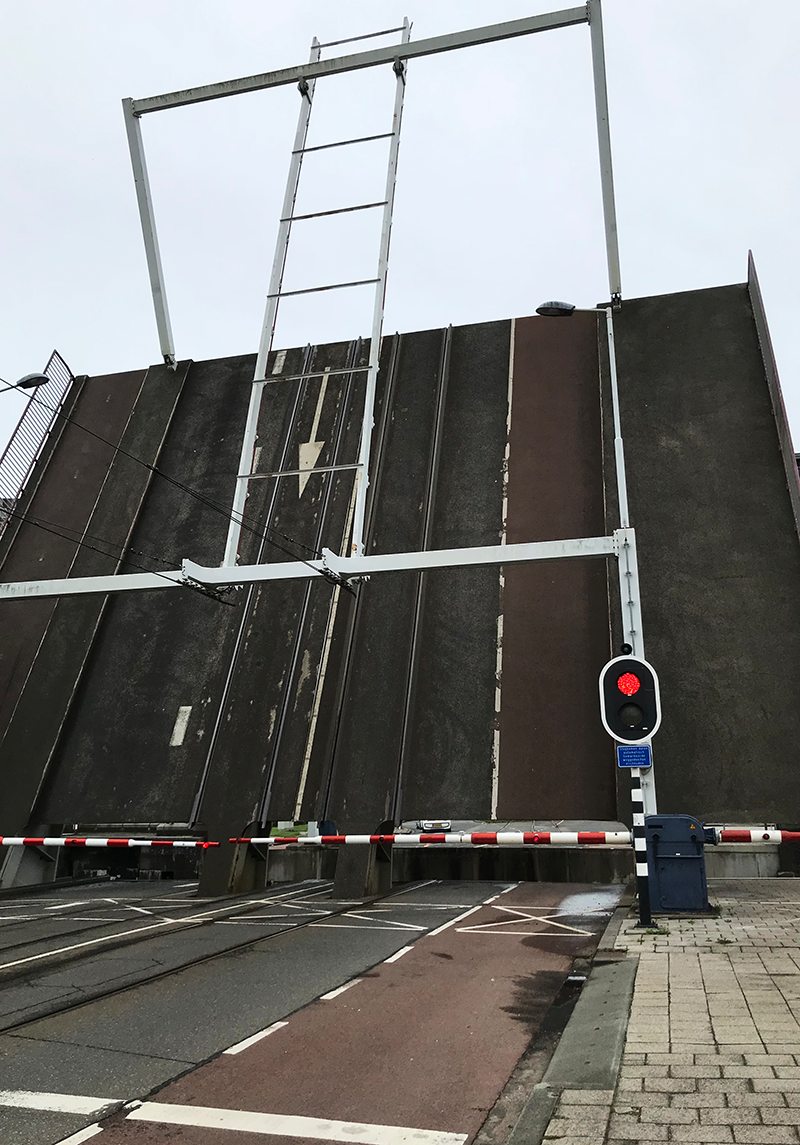
Were there certain events or situations that were formative for your career?
I have already described some of these situations. They include educational institutions and stays abroad. Of course they also include exhibitions that have influenced my development, such as The Secret Hotel by Janet Cardiff & George Bures Miller at Kunsthaus Bregenz. During my time in Berlin I absorbed the plays of René Pollesch… However if you think about the question in a larger context, then of course there is no event or situation that has not shaped me.
Were there certain people who were formative for your career?
Here too, I have already mentioned that my family plays an important role in this respect. I attended the first vernissage with my primary school teacher Norman Walch. When I was a student, important lecturers such as Fritz Balthaus or Armin Chodzinski were formative. Today, my two children and my partner as well as her family are additional important pillars and of course have a decisive influence on my career.
Has your environment supported you in your career?
I have been fortunate in that I have always been supported by those around me. I am always asked to justify my decisions or argue for them, but from an appreciative, benevolent standpoint.
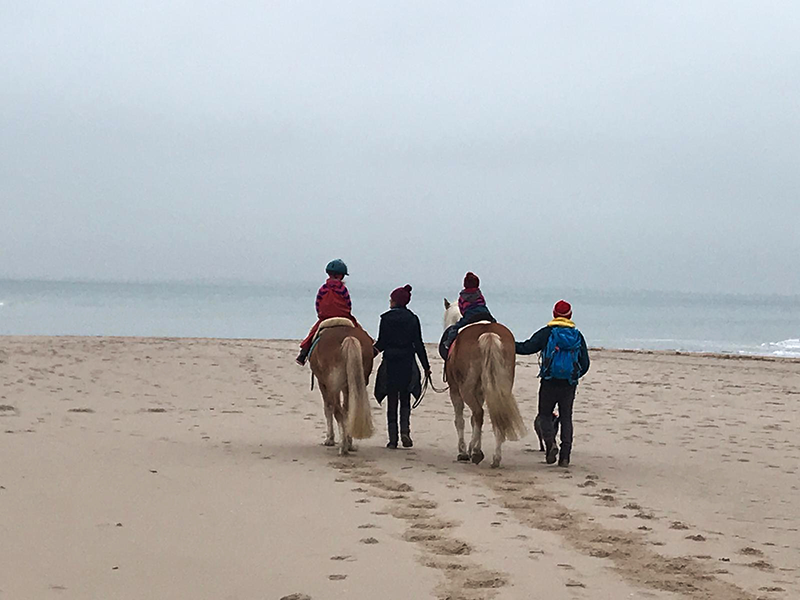
What are your current activities?
Together with my partner Amayi Wittmer, I organise life in Rotterdam for our family, two horses and myself. In the studio I work on different strands: A site-specific intervention on a headless statue of Jesus just around the corner, an installation for the Küefer-Martis-Huus, a project in the field of classical stucco technique, a scenic conversation situation and finally – less eagerly – on the purely administrative tiresome pending matters such as paying outstanding bills, etc. In between however, I also roam around on my bike and discover new parts of the city.
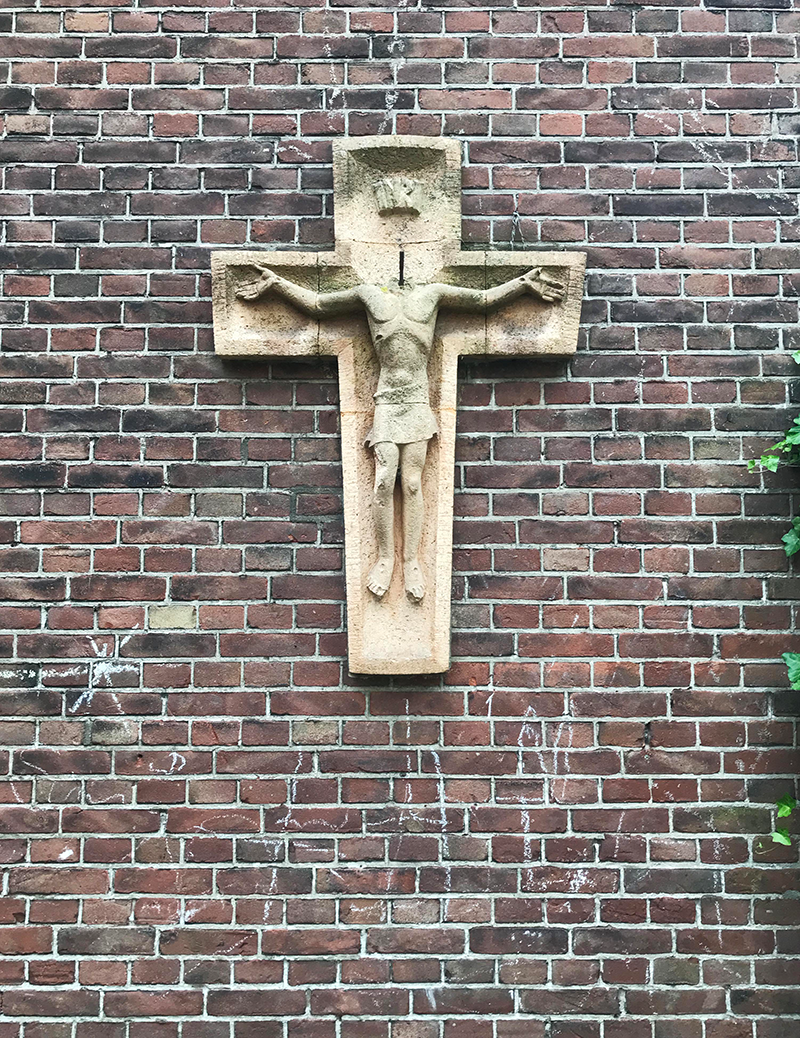
Does what you are currently doing fulfil you?
Yes definitely. I have my family with me, I live in an inspiring environment, I constantly meet new people full of energy and finally, I have the best job I can imagine.
Do you think that you yourself have an influence on whether your activities are fulfilling?
I assume that it is mainly up to me whether I perceive something as fulfilling or not. Unfortunately I do not (yet) have any concrete strategies to influence this. My general state of mind certainly has an important influence. However, I also observe that, for example, activities that basically give me pleasure can cause me stress in certain situations. Especially if they are under great time pressure or are connected with high expectations. In these situations it makes sense to focus on the matter at hand, on the actual project or creative event, and to put the external circumstances to one side.
What or who inspires you in everyday life?
It can be everything or nothing. At the moment, I find it inspiring to observe the traffic routing in Rotterdam… or the unusual proportions I encounter while jogging through a harbour complex. But I can also be inspired by a certain situation, such as the headless Jesus, or by a surface or materiality. It can also be the wild play of my older daughter or the highly concentrated cutting up of all the paper supplies of my younger daughter.
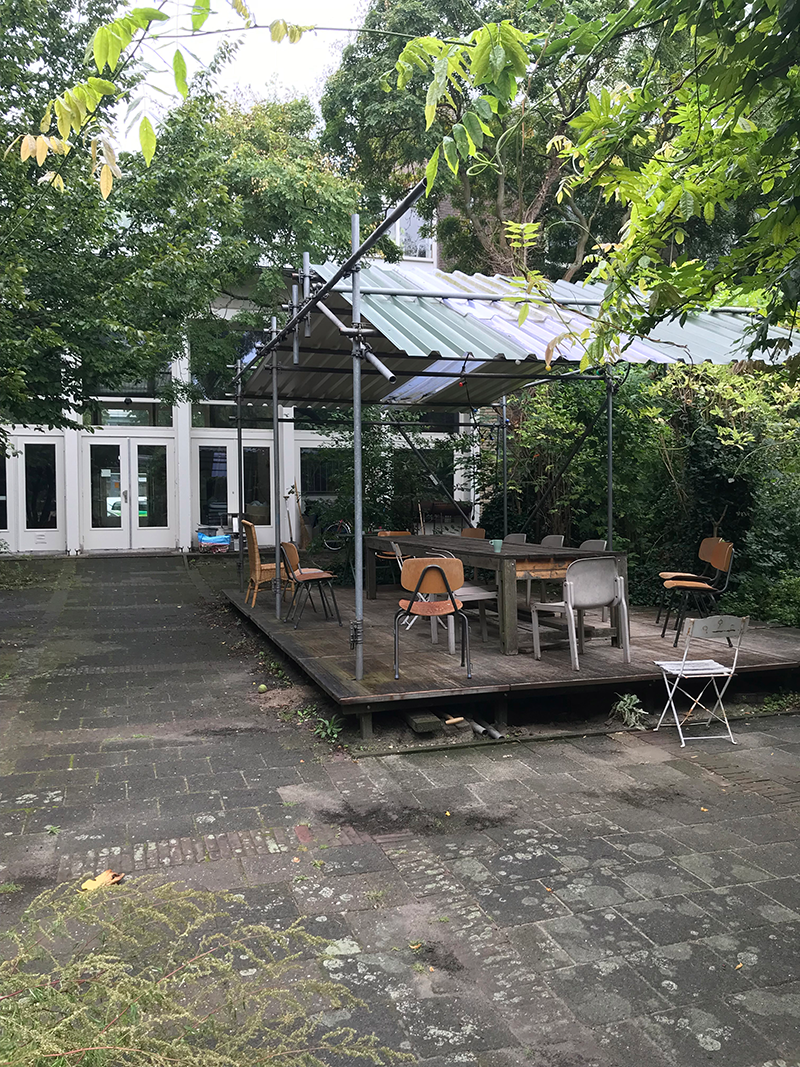
What or who gives you strength and energy in everyday life?
My family, my friends, my work, inspiring places, fresh air….
There are ‘magic moments’ when everything seems to fit. Moments that fulfil, inspire and give strength. Moments that confirm that the effort is worthwhile and that what you do is meaningful and valuable. Have you already experienced such moments in relation to your own activities?
There are happy moments when I receive recognition for my work, for example in the form of an exhibition or a grant. Then I feel confirmed in what I am doing and I run the risk of feeling like the actor Riggan Thomson in BIRDMAN OR (THE UNEXPECTED VIRTUE OF IGNORANCE) who is accused by his ex-wife: ‘You confuse love for admiration.’
As an artist I am dependent on attention and I sometimes feel this situation as an oppressive, dependency relationship. The situations described above are short-lived and I wouldn’t call them ‘magical’. The truly magical moments in relation to my work I experience in the working process when a strand of thought suddenly unknots itself, or in the middle of the night when I suddenly wake up and a thought captivates me… an adrenaline-soaked mixture of pure optimism and audacity.
Do you actively do something for it, so that such ‘magic’ moments can happen?
I try to create spaces that are conducive to a high level of concentration. However, this is definitely not a recipe. Magical moments as described above, have so far come to me completely sudden and unexpected.
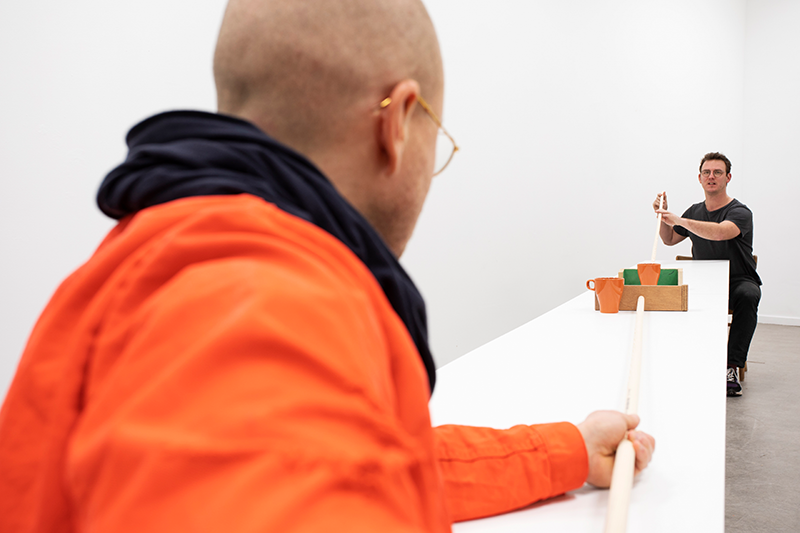
Are there moments when you doubt what you are doing?
Doubt is a constant companion. I try to deal with it well, to be critical but not fickle. Depending on my mental state, I succeed better or worse.
In retrospect, can you find something positive in difficult moments?
Sure. I assume that one takes away important experiences from every crisis. In relation to my artistic practice for example there are moments in which I can neither contextualise nor accept criticism. But it is precisely these moments that shake me, which in retrospect I consider to be very valuable and which move me forward.
Is there anything you would do differently in retrospect?
‘All men are wise – some before, some after.’ (Voltaire)
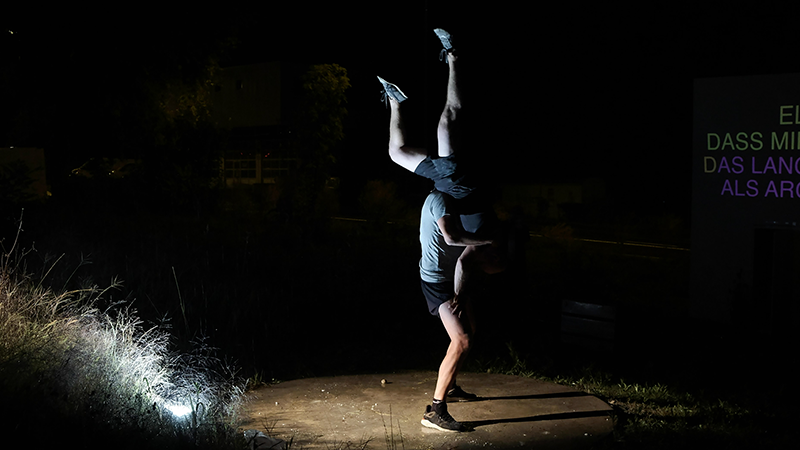
Do you want to contribute to society with your activities?
With my projects I want to question the seemingly obvious and encourage people to think. Accordingly I also strive for social relevance.
How well can you live from what you do professionally?
At the moment I am the receiver of the year long Liechtenstein Cultural Foundation Art Scholarship – an extremely privileged situation, a happy state of emergency. In recent years, it was mainly the numerous teaching assignments that secured my financial income. Here however, I was also in a very fortunate situation in that I received placement assignments from various institutions that challenged me and pushed me further. Of course all areas of life are closely interlinked and I have to work in a more focused and detached way than for example when I was a student.
Is there something you would like to (increasingly) spend time on in the future?
In general: Go deeper.
What are you most grateful for in life?
For my dear family, strong friends and the appearance of unlimited possibilities.
Interview
Laura Hilti, December 2020
Links
www.simonkindle.li
www.hetwildeweten.nl
www.foundationbad.nl
Credits
All photos: Simon Kindle
This interview is part of the project ‘Magic Moments’ by Kunstverein Schichtwechsel, in which people are interviewed about their careers, activities and their magical as well as difficult moments.
Curated by Stefani Andersen and Laura Hilti, Kunstverein Schichtwechsel.
Supported by Kulturstiftung Liechtenstein and Stiftung Fürstl. Kommerzienrat Guido Feger.
>>> All interviews
